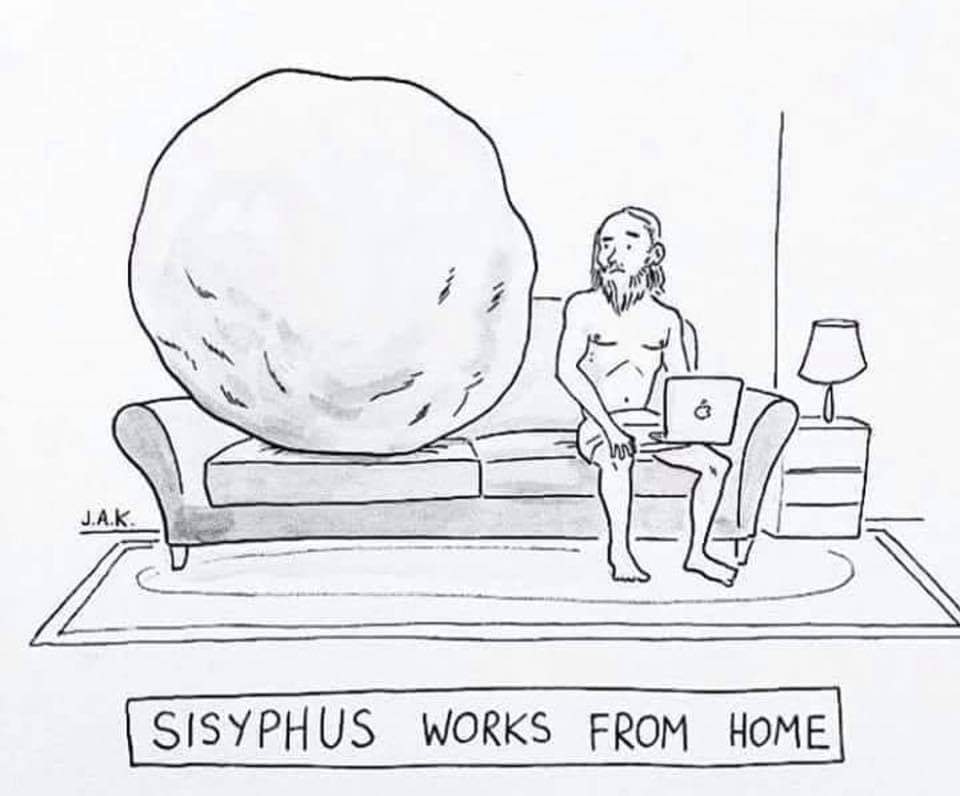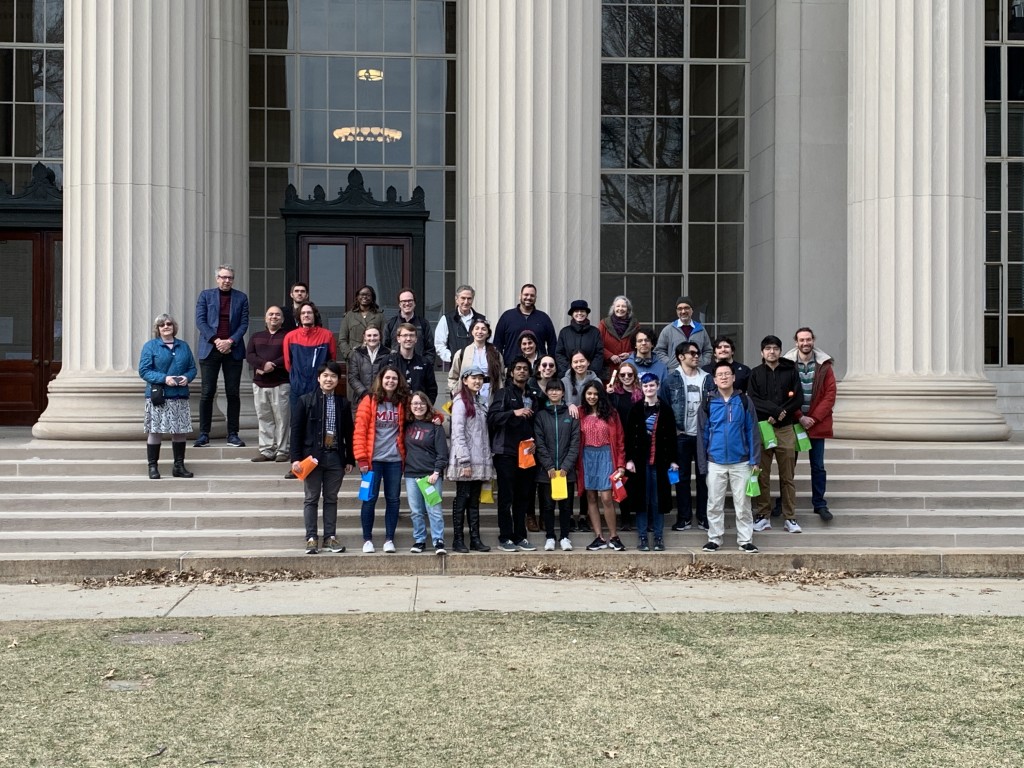Dear Physics Community,
I went by MIT today to pick up and drop off some things (see below). I had about 5 minutes in my office to grab the books I might need as a physicist. I chose,
- “Thermal Physics” by Kittel and Kroemer
- “Quantum Mechanics” by Schiff
- “Classical Electrodynamics” by Jackson
- “Molecular Biology of the Cell: by Alberts et al.
At home, I already have,
- “The Physics of Energy” by Jaffe and Taylor
- “Modern Classical Physics” by Thorne and Blandford
- “The American Practical Navigator” by Bowditch
So that’s my desert island physics book collection. I remember a time at Berkeley, over a pitcher of beer, talking with Gary Hinshaw and Rich Ruby about which ten books you would take that would capture the essence of physics. Never thought I would have to do it.
Top Level Things
Important: in the past days, I have learned about this thing called Zoom. We will all use Zoom a lot in the coming months and there is a tutorial webinar on it here. You have to sign up.
I’m posting Carol’s link again as it is very valuable to those of us new to online socializing.
Special for Physics Graduate Students – I have heard some of our graduate students are concerned that they will be asked to leave their MIT accommodations involuntarily. Every morning 8-9 am, I am on a phone call that includes Department Head, Deans, the Provost, Chancellor, senior staff and others. I have never heard this discussed or even mentioned. Our graduate students are extremely valuable to us and, early on, the decision was made graduate students should stay on campus if they chose. It is true there was encouragement for graduate students to leave if they could, for the obvious reason that they may be more comfortable at home with family, and reducing the population density on campus helps everyone out, but it has been clear from the start that if a graduate student chose to stay, that would be honored.
If any of you hear officially anything to the contrary, please let me know. I will do everything I can if the Institute moves to kick a Physics graduate student out of MIT housing. Also, I will bring this question up for tomorrow’s 8 am meeting and see if I can get an explicit guarantee, which I think would make us all feel better.
Thank you for letter me know about this.
Upcoming Departmental Events
All these events are virtual, via remote connection, and open to all the community. As time passes and we add events, they will be more targeted to specific groups as they were before.
- Thursday, March 19, 2020 – Faculty-Staff lunch, “Remote Teaching” led by Iain Stewart and Pablo Jarillo-Herrero
- Thursday, March 26, 2020 – Faculty-Staff lunch, our biophysicists will tell us about viruses, how they are transmitted, and how to limit epidemics
- Thursday, March 26, 2020 – Colloquium – Prof. Scott Gaudi, Ohio State, “The Demographics of Exoplanets”
- Thursday, April 2, 2020 – Colloquium – Prof. Alan Guth, MIT, “Inflation”
Academic Continuity Meeting
Around campus – construction projects around MIT have all be halted by the City of Cambridge. This includes on-campus renovation projects. Each building on campus will be designated
- Essential – full services and access
- Mothball candidate – TBD based on research in the building and access needed. Dean’s and Provost will decide.
- Mothballed – unoccupied, secured, very limited access, reduced services
- Leased – owned by someone else, subject to their rules.
I believe all Physics buildings are Essential. Access will follow the research guidelines the Dean’s are developing.
Security – MIT’s buildings are largely unoccupied. Every door that can be is locked, but some cannot be for fire access. The police force is changing from mostly reactive (following up on reports) to proactive (going around the buildings looking for problems). The police will be checking that people in MIT buildings are supposed to be there, so it is a good idea to carry (or even display) your ID. The police recommend that you make sure your office is locked and take with you anything that is valuable or important to you.
Remote teaching – we will start soon. We need to be doubly careful that we communicate to our students our expectations for their course work when we start again – things will be very different than before.
Shelter-in-place – Gov. Baker and Mayor Walsh have both said they do not anticipate giving a shelter-in-place order (meaning you cannot leave your house except to buy food, go to the pharmacy or doctor). This was done in the Bay Area because of a spike in COVID-19. We hope MA residents got the idea of social distance, hand washing, etc. early so this does not happen to us. If it does, it will have the following impacts:
- Access to campus even for critical experiments may not be possible
- We hope to increase access in a few weeks, but shelter-in-place would compromise that
- The campus would move to a “snow emergency” posture where even essential services might be curtailed
- There would not be access to campus rooms for recording lectures – this would have to be done at home
Finances – The Provost gave a short report on finances. Clearly, the endowment and its payout have taken a hit, but it is in good shape because of the efforts of MITIMCo over the past year. Also, MIT has recent experience from 2008 in reducing spending in bad economic times in a balanced way. Right now, MIT is incurring huge costs in contracts, gifts, and getting ready for online instruction. Right now is not the time to worry about next year’s budget – securing the community is the major task.
Physics Department
Physics Staff – thank you for coming to the zoom meeting yesterday, it was really good to see you and spend some time together. We will continue more frequent meetings to share experiences and check on each other as the term progresses.
Roll call – finding where our students, some of our research staff and some faculty are is underway. Emma Dunn is doing a terrific job finding our undergraduates and has made contact with 126 of 218. If you are an undergraduate, please respond to Emma – we want to know where you are and that you are safe. If you are a graduate student and you have not responded, Syd Miller will resend the link and please respond if you have not already.
Events – we are starting to schedule events – a few are listed above and I am working on adding more in next week. The Divisions are starting to have seminars and journal clubs and I will work with Christina to produce a consolidated list for the Department. Many of you had conference talks canceled, so please contact you Division Head, Lab Director or me and we will find a time for you to give your great talk to the community.
Oral exams – Nergis, Physics Council, Cathy and I are working with the Division Heads on Written and Oral Exams. We will have guidance early next week that will be consistent across the Department. We intend to be very flexible about extensions.
Open House – The APO team and Divisions are planning for our Admitted Graduate Student Open House on April 1-3. Graduate students play a big role in this and it is something we can all do that is positive for our community. Keep in mind that video presentations can be used for other things.
TAs, Student-workers, and UROPs – the Department intends to make full use of student workers and TAs, both graduate and undergraduate, in the coming weeks to overcome the serious challenges of going to online instruction. We have also encouraged faculty to re-engage with UROP students, but that will probably take a back seat to the getting online instruction going week after next. If you have not already, TAs, Student-workers and UROP should contact their supervisors and making plans for the coming term.
I have heard from some of the Physics Community reports of racist remarks relating to the origin coronavirus. No matter how you think, this virus just happened to appear in Wuhan first – it was always there, waiting. It is not the product of any country or race and assigning blame along those lines is not a part of our values and will not be tolerated.
This kind of nonsense will go away with time and, I hope, a better political climate. Still, we have to always say how unacceptable and awful it is.
Peter


